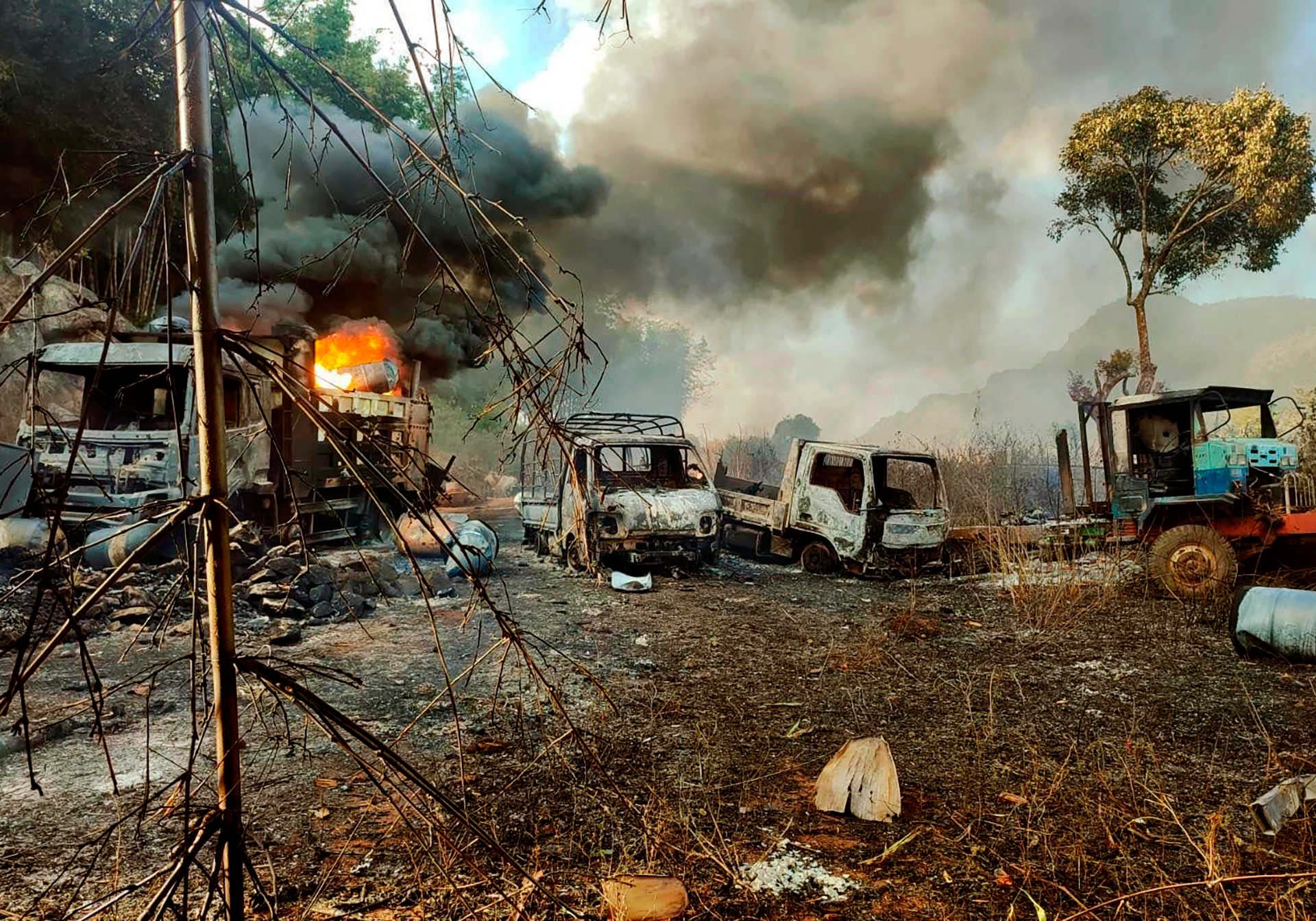The head of a United Nations team investigating human rights abuses in Myanmar has said that the scope and scale of alleged international crimes taking place in Myanmar “broadened dramatically” during the past year, as the military sought to assert its control in the wake of the February 2021 coup.
The UN established the Independent Investigative Mechanism for Myanmar (IIMM) in 2018 to investigate the military crackdown in northwestern Rakhine State that sent hundreds of thousands of mostly Muslim Rohingya across the border into Bangladesh and is now the subject of a genocide case at the International Court of Justice (ICJ).
The IIMM aims to gather evidence and build case files for proceedings in national, regional or international courts.
Its head Nicholas Koumjian told the UN’s Human Rights Council that incidents following the coup were now also a “major focus” of its investigations.
Myanmar was plunged into crisis by the coup, which prompted a mass protest movement that has developed into armed rebellion. Some 2,273 people have been killed and more than 15,000 arrested, according to the Assistance Association for Political Prisoners, which has been monitoring the situation.
“These events have been prioritized for investigation on the basis of a preliminary assessment of the gravity of the crimes concerned, including their scale, nature, manner of commission and impact on victims and the
likelihood of a court or tribunal taking jurisdiction over the crime(s) in question,” Koumjian said in the IIMM’s latest update (PDF) on the situation in Myanmar, which covers the year until the end of June 2022.
Referring to earlier findings in the IIMM’s annual report, he said there was ample indication that since the military takeover, crimes had been committed “on a scale and in a manner that constitutes a widespread and systematic attack against a civilian population” and that the “geographic scope” of the suspected crimes and “nature of the criminality” had expanded.
Death penalty revived
In June, the generals executed four anti-coup politicians and activists in the first use of the death penalty in some 30 years.
The IIMM report noted that none of the trial proceedings — carried out in a military court — had taken place in public, and that the judgments were not publicly accessible. In such circumstances, the imposition of the death penalty “could constitute the crime of murder, openly carried out by an organ of government,” it said.
The mechanism had benefitted from an “exponential increase” since the coup of evidence submitted by individuals and organisations, and now holds nearly three million items, including interview statements,
documentation, videos, photographs, geospatial imagery and social media material in its repository.
Over the past year, “the quantity and, more importantly, the probative value of the information received, namely the extent to which the information helps prove that serious international crimes were committed or helps identify persons responsible for such crimes, increased significantly,” the report said.
Social media platform Facebook also handed over items from “accounts controlled by the Myanmar military that were taken down because they misrepresented their identity,” Koumjian told the council.
Even before the 2017 crackdown, Rohingya endured years of discrimination and abuse, with Facebook accused of allowing hate speech to proliferate on its platform.
The company has said it is working to stop hate speech and told the Reuters news agency that it supported international efforts for accountability for the crimes committed against the Rohingya.
“(We) have made voluntary, lawful disclosures to the U.N.’s investigative mechanism as well as disclosures of public information to The Gambia”, which has filed the ICJ genocide case, Miranda Sissons, director of human rights policy at Meta, Facebook’s parent company, said in an email.

Myanmar, which refuses to use the word Rohingya, has denied genocide against the group, saying its “clearance operations” were a necessary response to attacks on police posts by a Rohingya armed group.
Since the coup, the situation in Rakhine has deteriorated with rising tension between the Myanmar military and the Arakan Army, another armed group fighting for self-determination for ethnic minorities in the State, that has left the Rohingya caught between the two.
Last November, there were reports of mass arrests of Rohingya who had tried to leave Rakhine, with the military handing out more severe sentences against those convicted.
The generals have also dismissed allegations of abuse in its post-coup crackdown, claiming it is fighting against “terrorists”, a label it has attached to anyone opposed to the regime, including the government set up by elected politicians who were removed from office by the military.
